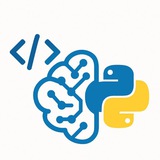Tip for clean code in Python:
Use Dataclasses for classes that primarily store data. The
#Python #CleanCode #ProgrammingTips #SoftwareDevelopment #Dataclasses #CodeQuality
━━━━━━━━━━━━━━━
By: @CodeProgrammer ✨
Use Dataclasses for classes that primarily store data. The
@dataclass decorator automatically generates special methods like __init__(), __repr__(), and __eq__(), reducing boilerplate code and making your intent clearer.from dataclasses import dataclass
# --- BEFORE: Using a standard class ---
# A lot of boilerplate code is needed for basic functionality.
class ProductOld:
def __init__(self, name: str, price: float, sku: str):
self.name = name
self.price = price
self.sku = sku
def __repr__(self):
return f"ProductOld(name='{self.name}', price={self.price}, sku='{self.sku}')"
def __eq__(self, other):
if not isinstance(other, ProductOld):
return NotImplemented
return (self.name, self.price, self.sku) == (other.name, other.price, other.sku)
# Example Usage
product_a = ProductOld("Laptop", 1200.00, "LP-123")
product_b = ProductOld("Laptop", 1200.00, "LP-123")
print(product_a) # Output: ProductOld(name='Laptop', price=1200.0, sku='LP-123')
print(product_a == product_b) # Output: True
# --- AFTER: Using a dataclass ---
# The code is concise, readable, and less error-prone.
@dataclass(frozen=True) # frozen=True makes instances immutable
class Product:
name: str
price: float
sku: str
# Example Usage
product_c = Product("Laptop", 1200.00, "LP-123")
product_d = Product("Laptop", 1200.00, "LP-123")
print(product_c) # Output: Product(name='Laptop', price=1200.0, sku='LP-123')
print(product_c == product_d) # Output: True
#Python #CleanCode #ProgrammingTips #SoftwareDevelopment #Dataclasses #CodeQuality
━━━━━━━━━━━━━━━
By: @CodeProgrammer ✨
❤4🎉1
